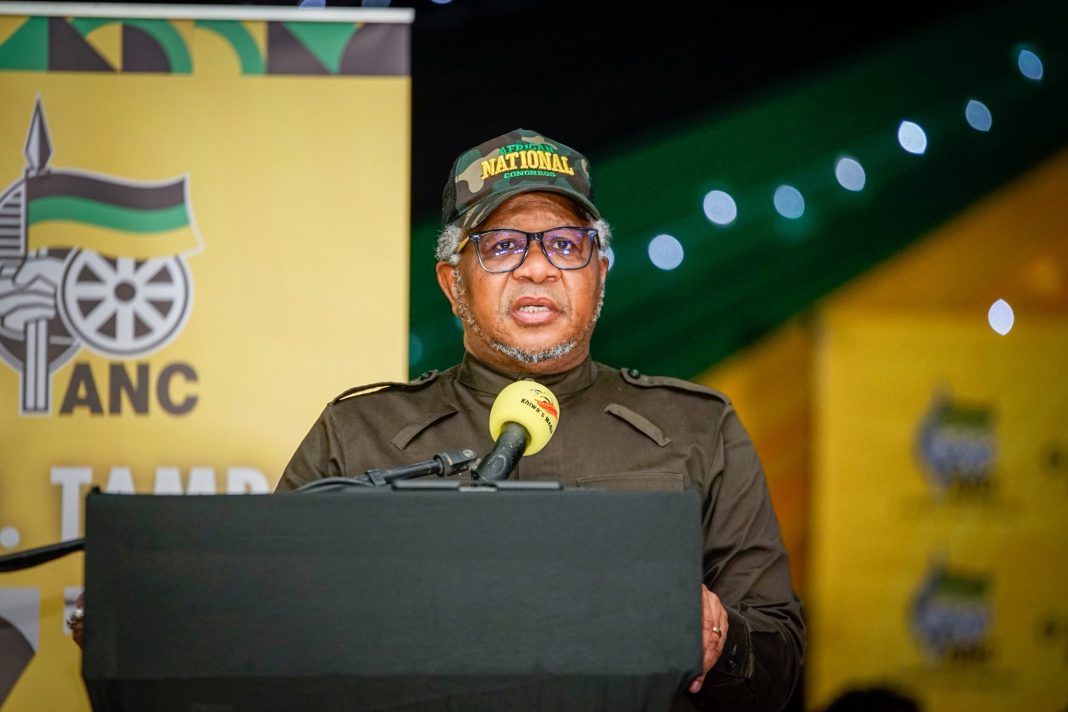By Johnathan Paoli
African National Congress secretary-general Fikile Mbalula has criticised the Democratic Alliance’s decision to withdraw from the National Dialogue, accusing the party of undermining national interests.
“Even if the DA walks out, the GNU will never collapse. The GNU must be understood in this context. Our strategy for the realisation of the NDR (National Democratic Revolution) has not changed. We no longer have a 50% majority, but we remain in control of the government, and we will not retreat from pushing forward the NDR,” Mbalula said on Sunday.
He was speaking at the ANC’s OR Tambo Regional Conference in Mthatha in the Eastern Cape.
He said the DA’s exit was less about principle and more about politics.
The DA’s decision, triggered by the dismissal of Trade and Industry Deputy Minister Andrew Whitfield, has challenged the unity of the GNU.
The ANC maintained that the National Dialogue was an essential tool for addressing deep-rooted issues such as inequality, poverty and unemployment, and must be inclusive of all sectors.
Mbalula emphasised that the ANC entered the GNU not as cowards, but as pragmatic custodians of governance.
He described the GNU as a tactical response, not a strategic end, designed to advance the NDR in the face of a shifting political terrain.
“We respect the election results, but this strategic setback doesn’t spell the end. We stay to serve,” he said.
The ANC responded to DA threats to vote against key department budgets, particularly Human Settlements and Higher Education and Training, by warning of a dangerous precedent.
“Undermining budget votes isn’t just disruptive, it undermines the spirit of the GNU,” ANC spokesperson Mahlengi Bhengu said in a statement.
Bhengu stressed that budget votes enabled critical social programmes benefiting ordinary South Africans, and that punishing entire ministries for individual disputes was harmful to democracy and accountability.
The ANC called on the DA to clarify whether they were genuinely partners in the GNU or masquerading as opposition within the government.
Bhengu invoked South Africa’s legacy of negotiated democracy to defend the National Dialogue’s legitimacy; from the Freedom Charter to Codesa and the 1996 Constitution.
She described dialogue as part of a democratic tradition, not a partisan whim, urging civil society, business, and labour to join and not boycott the process.
“South Africa is built on hard-won negotiations. Dialogue is not a gimmick but offers real opportunities rooted in those traditions,” she said.
Mbalula pressed for internal renewal within the ANC, urging branches to prioritise foundations, member discipline and community responsiveness over internal politics.
“Branches must champion service delivery, fix roads, water and electricity,” he said.
Looking ahead to the 2026 local government elections, he stressed the need of gaining the trust of younger voters.
“We must register over a million voters under 40, and restore trust where it’s broken,” he said.
Mbalula confirmed that the ANC had recently held bilateral talks with the South African Communist Party (SACP) to strengthen the alliance.
Acknowledging the SACP’s decision to contest the municipal elections independently, he reiterated his disappointment.
“Every configuration is on the table, but standing as a separate political party isn’t useful for the NDR, it opens the gap for opportunists and further weakening of the alliance,” he warned.
Mbalula maintained that unity among progressive forces, particularly the Congress of South African Trade Unions and the SACP, remained vital.
“Without the working-class voice, without socialist principles, the NDR loses its backbone,” he said.
Mbalula concluded by reinforcing the message that the ANC would persist in the GNU as long as it served South African interests.
INSIDE POLITICS

